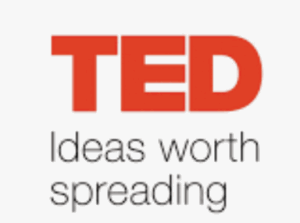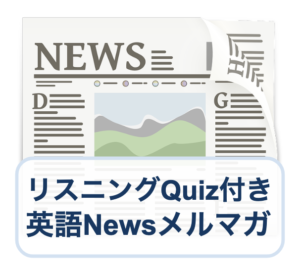毎晩8時間の睡眠が本当に必要なのか【Do you really need 8 hours of sleep every night?】

【TED Talks: Do you really need 8 hours of sleep every night?】
「TED Talks」を視聴し、動画のテーマについて意見を述べる練習をしてみましょう。
今回のテーマは「毎晩8時間の睡眠が本当に必要なのか」です。
 「TED Talks(テッド・トーク)」とは、世界中の専門家や著名人が「広める価値のあるアイデア(Ideas worth spreading)」をテーマに行う短いプレゼンテーションです。
「TED Talks(テッド・トーク)」とは、世界中の専門家や著名人が「広める価値のあるアイデア(Ideas worth spreading)」をテーマに行う短いプレゼンテーションです。
「Technology, Entertainment, Design」の略であるTEDという非営利団体が提供しています。
科学、教育、ビジネス、アート、ライフスタイルなど幅広いジャンルがあり、英語を学びながら考え方や価値観を広げる良い機会となるコンテンツです。
動画は主に5〜20分と短く、日本語字幕や英語スクリプトが用意されているため、英語初級者にも取り組みやすくなっています。
Step1: 動画の全体リスニング
▶まずは動画全体の要点を理解するリスニング訓練です。
次の正誤問題の答えを探しながら視聴し、「True(正しい)/ False(誤り)」 のどちらかを選びましょう。
Q1) Some people can stay healthy even if they sleep only six hours.(6時間睡眠でも健康を保てる人もいる)
Q2) Sleep tracking devices help people sleep better by giving useful data.(睡眠トラッカーが役立つデータを提供し、睡眠改善につながる)
Q3) The narrator recommends buying sleep devices before consulting a doctor.(ナレーターは、医師に相談する前に睡眠用のデバイスを購入することを勧めている)
※歯車アイコン(⚙)→「字幕」→「英語」や「日本語」を選択可能です。
When you can’t sleep, you’re desperate for help. And there’s a booming industry waiting to tell you all the ways a lack of sleep can ruin your health — and to sell you fancy gadgets to help you finally doze off.
Shedding light on this flawed doomsday messaging, Dr. Jen Gunter explains why you shouldn’t lose sleep over sleep — and what to do instead.
sleep-deprived /ˈsliːp dɪˌpraɪvd/(形)睡眠不足の
anxiety /æŋˈzaɪ.ə.ti/(名)不安、心配
orthosomnia /ˌɔːr.θəˈsɒm.ni.ə/(名)完璧な睡眠への強いこだわりによる不眠症
fixate /ˈfɪk.seɪt/(動)執着する、固執する
evidence-based /ˈev.ɪ.dəns beɪst/(形)科学的根拠に基づいた
CBT-I(略語)不眠症のための認知行動療法(Cognitive Behavioral Therapy for Insomnia)
Step2 : 正誤問題の解答
▶次に、正誤問題の解答を見て答え合わせし、動画内での該当箇所を確認しましょう。
Step3 : 動画の大意要約
▶この動画の大意要約を読み、重要語句や話の流れを確実に理解しましょう。
Many people today are obsessed with the idea of getting perfect sleep.
最近、多くの人が「完璧な睡眠」にとらわれています。
They believe sleeping less than seven or eight hours will harm their health.
7〜8時間より少ない睡眠は健康に悪いと信じている人もいます。
But the speaker explains that sleep needs vary and some people are fine with just six hours.
しかし、話者は「必要な睡眠時間には個人差があり、6時間でも問題ない人もいる」と説明します。
She also warns that tracking sleep too much can lead to anxiety and even sleep problems.
また、睡眠を過度に記録することが不安や睡眠障害につながると注意を促します。
In the end, she suggests checking how you feel during the day instead of just counting hours.
最後に、何時間寝たかよりも「日中どう感じるか」を基準に考えるべきだと提案しています。
Step4 : ディスカッション用の質問と解答例
▶仕上げに、このテーマに関する意見発表を練習をしましょう。次の設問の中から幾つか選び、20〜30秒程度で答えてください。
Q1) How many hours of sleep do you usually get?
普段、何時間ぐらいの睡眠を取っていますか。
Q2) Is your sleep schedule the same on weekdays and weekends?
平日と休日で睡眠スケジュールは同じですか。
Q3) Do you use any sleep-related apps or gadgets? Why or why not?
睡眠関連のアプリやガジェットを使っていますか?その理由は?
Q4) Do you think it’s helpful to track your sleep with a device?
睡眠を機器で記録するのは役立つと思いますか?
Q5) What helps you fall asleep more easily?
あなたが寝つきをよくするためにしていることは何ですか?
Q6) Do you feel reasonably well rested during the day?
(十分な睡眠をとって)日中に疲れを感じずに過ごせていますか。
Q7) Do you generally sleep through the night without disturbances?
夜中に何度も目を覚ますことなく、朝までぐっすり眠れていますか。
Q8) What was the most valuable thing you learned from this video?
この動画の中で最も学びになったことは何ですか。
Q1) How many hours of sleep do you usually get?
I usually get around six hours of sleep. I go to bed a bit late because I watch TV or scroll on my phone before sleeping.
(普段は6時間くらい寝ています。寝る前にテレビを見たりスマホを見たりしてしまうので、少し遅くなります。)
Q2) Is your sleep schedule the same on weekdays and weekends?
No, it’s not the same. On weekdays I wake up early for work, but on weekends I sleep in and go to bed later than usual.
(いいえ、同じではありません。平日は仕事のために早起きしますが、週末は寝坊して、寝るのも遅くなります。)
Q3) Do you use any sleep-related apps or gadgets? Why or why not?
No, I don’t use any. I think tracking sleep would make me more anxious, and I prefer not to worry about it too much.
(いいえ、使っていません。睡眠を記録すると逆に不安になりそうなので、あまり気にしすぎたくないと思っています。)
無料のディクテーションQuiz企画を実施中!

ディクテーションとは、「英文を見ずに音声を聞いて、正確に書き取る訓練方法」です。
毎月3回、英語ニュースのディクテーション答案を提出した方を対象に無料添削を実施し、不正解箇所から、リスニングや語彙・文法の弱点を特定します!
英語ニュースを聞き取れるようになりたい方、英語力を中級から上級へレベルアップしたい方、メルマガ特典の「ディクテーションQuiz企画」を試してみませんか。
▶ 無料登録はコチラから